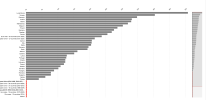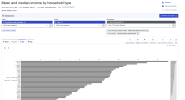Maybe the government should task the esri to do a comprehensive study into what is actually causing these high prices, is it high taxes, regulatory burdens or infrastructure deficits, but need a quantitative analysis of what is causing it? No more BS about us being an island off an island because we used to be alot cheaper than many of our peers in Europe.
We already know the causes:
(1) very high energy costs
(2) high insurance costs - this is linked to the judicuary and the size of awards
(3) very high commercial rents - the retail rents in Galway are higher than in UK cities 10x larger
(4) high professional fees / dental / medical / legal costs
(5) lack of competition allows higher pricing power and high net margins (Diageo is a good example)
(6) small size of market / less economies of scale / not as many wholesalers / lack of competition in supply chains
(7) being an island and transport costs doesn't help, but is a small factor
(8) VAT at 23% is a bit higher than most places, but our ER SI is lower than other countries
Am I missing anything?

